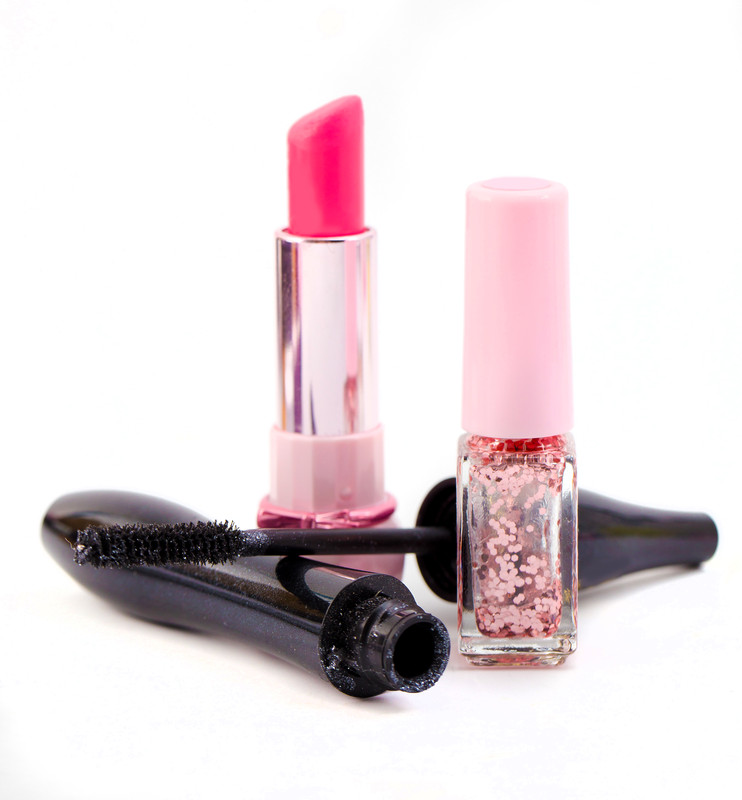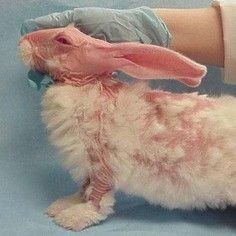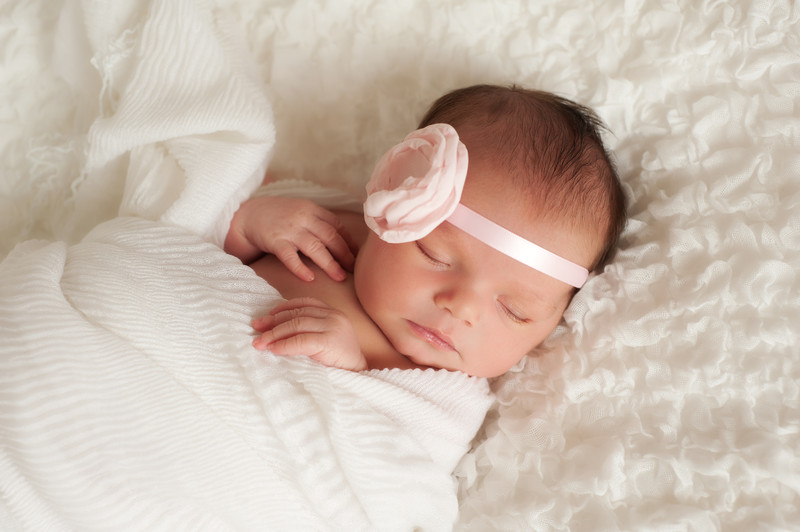Written by: Elizabeth
Oath of God Ministries
Cosmetic and Consumer Product Testing on Animals
 Oath of God Ministries believes that product testing on animals for cosmetics, toiletries, food additives and household cleaning products has been overreaching, cruel and abusive.
Oath of God Ministries believes that product testing on animals for cosmetics, toiletries, food additives and household cleaning products has been overreaching, cruel and abusive.
It is within private or commercial industries where most consumer product testing of this type occurs. The U.S. industries manufacture and import approximately 75,000 chemicals, 3,000 of them at over a million pounds per year. (1) Many of these chemicals are ingredients in cosmetics, household cleaners and toiletries. Whenever a new synthetic chemical is used in any of these products a corporation will use animals to test toxicity levels. These tests, however, do not determine the safety of the product and many of these synthetic chemicals are not safe despite what consumers may believe.
The purpose of this section is two-fold. First, consumers need to consider purchasing alternative products that are safer for their families. Chemicals can be a blessing to society but we are now swimming in chemicals and unwarrantedly exposing our family to them. We breathe chemicals via aerosols and spray cans. We eat chemicals via food additives, artificial flavoring and food coloring. We wash in chemicals via soaps and toiletries. We taste chemicals via mouth wash and toothpaste. Our skin absorbs chemicals via cosmetics, creams, and toiletries. Sadly many of these products are replete with carcinogens. The scripture “They shall drink poison and it will not harm them” gives a new and necessary faith walk to the Christian preferring these chemically based products for their children and families.
Secondly, by purchasing safer products which do not contain carcinogens the number of toxicity tests performed on animals can be significantly reduced and eventually eliminated. There are over 1,300 companies which  provide cosmetics, toiletries and household cleaners and they do not test on animals. These products also contain natural or biodegradable ingredients which are safer for human use. The majority of these products are superior in quality as well. In the United States animal testing for cosmetics, toiletries, and cleaning products are not required by law yet extremely painful tests continue to be done on animals without the use of anesthesia.
provide cosmetics, toiletries and household cleaners and they do not test on animals. These products also contain natural or biodegradable ingredients which are safer for human use. The majority of these products are superior in quality as well. In the United States animal testing for cosmetics, toiletries, and cleaning products are not required by law yet extremely painful tests continue to be done on animals without the use of anesthesia.
The Federal Food Drug, and Cosmetic Act (regulated by the Food and Drug Administration) prohibits the sale of mislabeled and “adulterated” cosmetics, but does not require that animal tests be conducted to demonstrate that the cosmetics are safe according to the US Humane Society. Separately, the products are tested on animals only to determine the toxicity levels, not the safety levels. On its website, the Breast Cancer Fund is quoted as saying to women regarding cosmetics “Many of these substances are also used in industrial manufacturing processes to clean industrial equipment, stabilize pesticides and grease gears. And we can all agree that an ingredient that effectively scours a garage floor may not be the best choice for a facial cleanser.” (2) Rather than purchase a safer and cruelty-free cosmetic product many women continue to apply synthetic chemicals to their skin whereby the chemicals enter their blood stream.
Even in today’s medically advanced society God is still speaking,“My people perish from lack of understanding”. Although animal testing is not required by law, it protects to some extent the corporations from consumer lawsuits given the possibility that a synthetic chemical ingredient might cause skin irritations, cancer or death. Some blue-chip iconic companies also own their own chemical manufacturing plants. For example, Procter & Gamble (P&G) Chemicals is the division of the Procter & Gamble Company which operates in the oleochemicals business. It’s reasonable to believe that withdrawing synthetic chemicals from various product lines might negatively impact the finances of its chemical division. For the consumer, however, there are much safer and higher quality products available which are sold by smaller companies who do not use questionable ingredients and do not test on animals.
The big companies spend millions of dollars to advertise their chemically based cleaners, cosmetics and toiletries. Unfortunately consumers indoctrinated by these ads still purchase these products exposing both themselves and their families to harmful chemicals. According to a NY Times article, dated Jan 17, 2014, written by Katie Thomas, titled “The No More Tears Shampoo, Now with No Formaldehyde”, she writes “What’s different about the shampoo, and 100 other baby products sold by Johnson & Johnson? The products no longer contain two potentially harmful chemicals, formaldehyde and 1,4-dioxane, that have come under increasing scrutiny by consumers and environmental groups. In response to consumer pressure two years ago, the company pledged to remove both chemicals from its baby products by the end of 2013, and this month, it said that it had met that goal.” J&J’s ingredient “Quaternium-15” is a formaldehyde-releasing preservative. (3)
Thomas also wrote, “This fall, Walmart announced that it would eventually require suppliers to reduce or eliminate 10 chemicals from cleaning and personal care products.” Procter & Gamble has promised to eliminate phthalates and triclosan, whose safety has also been questioned, by the end of this year.”(4) Although these products were tested on animals the product’s safety still remained in question. The majority of corporations impose painful or lethal tests on animals because they are selling consumer products that contain questionable synthetic chemicals.
On a separate note, David Ewing Duncan wrote an article for National Geographic, titled “Chemicals Within Us”. To write the article he had his blood tested to determine if chemical toxins had built up in his body since childhood. Duncan tested for 320 chemicals in his body. Many of these chemicals may have been absorbed through skin contact, breathing or even consuming chemicals by way of food consumption. It was determined that some of these chemicals had lingered for decades in his body and a few of these substances were cause for concern. (5)
 Oath of God Ministries is especially careful when researching reports from environmental groups but believes that the study from the Environmental Working Group is in line with other studies regarding chemicals found in humans. The EWG’s study titled, “Body Burden, The Pollution in Newborns” detected 287 commercial chemicals, pesticides and pollutants in the umbilical cord from 10 newborn babies randomly selected by the Red Cross from US hospitals. Out of the 287 chemicals, 180 cause cancers in humans and animals, 217 are toxic to the brain and nervous system and 208 cause developmental problems. (6) In an earlier published edition of the journal Public Health Reports (Thornton, et al. 2002) – led by Mount Sinai School of Medicine in New York, in collaboration with the EWG, researchers at two major laboratories found 167 chemicals, pollutants, and pesticides in the blood and urine of nine adult Americans. According to the study “none of the nine volunteers work with chemicals on the job. All led healthy lives. Yet the subjects contained an average of 91 compounds – most of which did not exist 75 years ago.”(7) The Centers for Disease Control also does similar studies and posts them on its website.
Oath of God Ministries is especially careful when researching reports from environmental groups but believes that the study from the Environmental Working Group is in line with other studies regarding chemicals found in humans. The EWG’s study titled, “Body Burden, The Pollution in Newborns” detected 287 commercial chemicals, pesticides and pollutants in the umbilical cord from 10 newborn babies randomly selected by the Red Cross from US hospitals. Out of the 287 chemicals, 180 cause cancers in humans and animals, 217 are toxic to the brain and nervous system and 208 cause developmental problems. (6) In an earlier published edition of the journal Public Health Reports (Thornton, et al. 2002) – led by Mount Sinai School of Medicine in New York, in collaboration with the EWG, researchers at two major laboratories found 167 chemicals, pollutants, and pesticides in the blood and urine of nine adult Americans. According to the study “none of the nine volunteers work with chemicals on the job. All led healthy lives. Yet the subjects contained an average of 91 compounds – most of which did not exist 75 years ago.”(7) The Centers for Disease Control also does similar studies and posts them on its website.
Europe an Union, Israel and India Ban Animal Tested Products On January 1, 2014 Israel’s ban on the import, sale, and marketing of animal-tested household cleaners, cosmetics, and toiletries went into effect. In June 2013 India banned animal testing for cosmetics. As of January 2014 India is currently mapping out plans to stop animal testing on household cleaning products. (8) According to the BBC, dated March 12, 2013, “European Union regulators announced a ban Monday on the import and sale of cosmetics containing ingredients tested on animals and to pledge more efforts to push other parts of the world, like China, to accept alternatives.” (9) “Labour MEP (Member European Parliament) and consumer affairs spokesman Phillip Whitehead said: “These cosmetic giants will only invest in new testing methods when we take their products off the market. We are sending a clear signal to the cosmetic industry: listen to public opinion; find new ways to test your products because we won’t sell them in the EU anymore.” (10) Eventually all eyes will be turning to China to use alternative methods to animal testing since many other countries are now banning the import of animal tested cosmetics.
an Union, Israel and India Ban Animal Tested Products On January 1, 2014 Israel’s ban on the import, sale, and marketing of animal-tested household cleaners, cosmetics, and toiletries went into effect. In June 2013 India banned animal testing for cosmetics. As of January 2014 India is currently mapping out plans to stop animal testing on household cleaning products. (8) According to the BBC, dated March 12, 2013, “European Union regulators announced a ban Monday on the import and sale of cosmetics containing ingredients tested on animals and to pledge more efforts to push other parts of the world, like China, to accept alternatives.” (9) “Labour MEP (Member European Parliament) and consumer affairs spokesman Phillip Whitehead said: “These cosmetic giants will only invest in new testing methods when we take their products off the market. We are sending a clear signal to the cosmetic industry: listen to public opinion; find new ways to test your products because we won’t sell them in the EU anymore.” (10) Eventually all eyes will be turning to China to use alternative methods to animal testing since many other countries are now banning the import of animal tested cosmetics.
According to the Cosmetics Business, “Chinese officials have accepted the country’s first-ever non-animal testing method for cosmetics phototoxicity, or skin irritation, Yang Xingfen, the director of the Centre for Disease Control and Prevention of Guangdong Province has confirmed. “We filed the alternative test method… to the State Food and Drug Administration (SFDA) for approval,” (11)
In the United States the proposed Humane Cosmetics Act, H.R. 4148, if passed would make it unlawful for anyone to conduct or commission cosmetic animal testing in the U.S. It would also prohibit selling, offering for sale or transporting any cosmetics in interstate commerce if the final product or any ingredient was developed or manufactured using animal testing. This bill is very similar to Israel’s law banning animal tested ingredients and products according to the US Humane Society.
Footnotes:
Listings for all footnotes are under construction. Thank you for your patience.